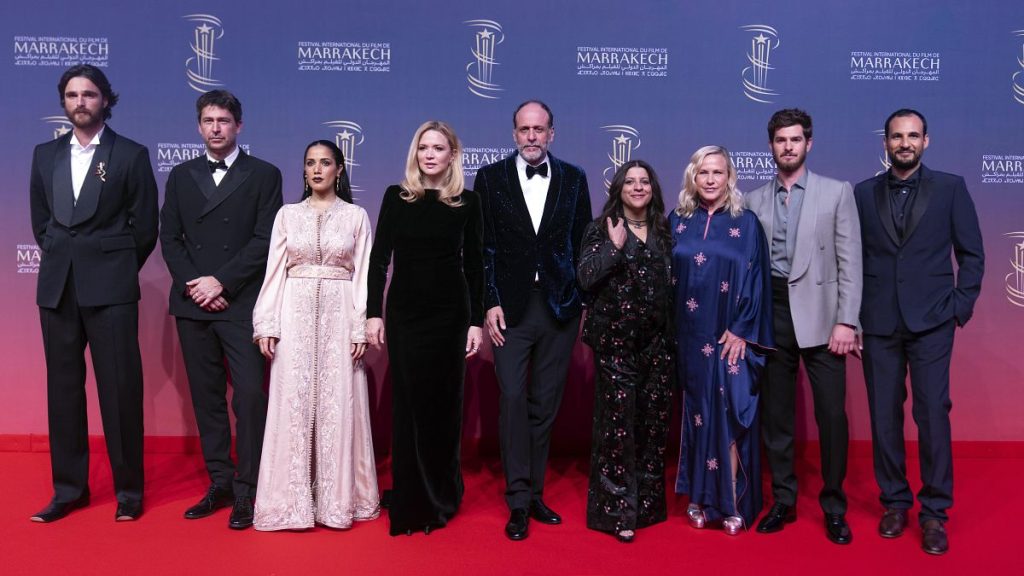The Marrakech International Film Festival, celebrated for its vibrant representation of cinema, has grown significantly in influence over its 21-year history, marking its most recent edition as a pivotal moment in its evolution. Situated within Morocco and recognized as one of the largest film festivals in the Middle East and North Africa, it attracts industry luminaries from around the globe, creating a melting pot of cultures and creative expressions. This year’s festival showcases 70 feature films from 32 different countries, including several major Oscar contenders. However, unlike its more established counterparts in Venice, Cannes, and Toronto, Marrakech places a distinctive emphasis on emerging African and Middle Eastern talent, providing these burgeoning markets with a crucial platform for visibility.
The festival’s focus on new voices is epitomized by the panel overseeing the competition, led by Luca Guadagnino, the Italian-Algerian director known for his innovative storytelling. Among the competition are 14 films from first or second-time filmmakers, with a jury made up of notable actors and directors, such as Virginie Efira and Patricia Arquette. These films delve into pressing social issues, providing audiences with intimate portrayals of personal and collective struggles. Works like Saïd Hamich’s “Across the Sea,” which narrates the journey of a young Moroccan man immigrating to Marseille, alongside Poland’s Oscar contender “Under the Volcano” by Damian Kocur, reflect the festival’s commitment to relevant storytelling from both established and emerging voices in cinema.
Critical dialogues are a cornerstone of the festival, with esteemed figures such as Sean Penn, Alfonso Cuarón, and David Cronenberg participating in discussions and tributes. Remi Bonhomme, the artistic director, emphasizes the festival’s unique ability to attract prominent talent while also highlighting underrepresented films from the African and Middle Eastern regions. Bonhomme articulates the festival’s mission as one that balances showcasing global cinematic excellence with nurturing local talent, advocating for the voices of filmmakers who can resonate with audiences from their unique cultural and social contexts without being pigeonholed into representing their entire country.
Themes explored in this year’s festival include the intricacies of family life and its social and political implications, a subject that resonates universally yet is deeply personal within specific cultural frameworks. Directors like Mohammad Rasoulof, who helms “The Seed of the Sacred Fig,” illustrate how narratives centered around family can effectively communicate broader societal issues. This thematic approach underpins the festival’s commitment to meaningful storytelling, encouraging filmmakers to illustrate their own experiences against the backdrop of wider political realities.
The festival commenced with the electrifying thriller “The Order,” featuring Jude Law in a gripping narrative centered on an FBI man’s pursuit of a white supremacist group leader. Such thematic diversity emphasizes Marrakech’s role not only in promoting Moroccan cinema but also in addressing culturally significant topics across various narrative forms. Founded by King Mohammed VI, and presided over by his brother Prince Moulay Rachid, the festival reflects Morocco’s dedication to elevating its cinematic landscape and showcases a range of films that confront issues of immigration, identity, and social justice.
In summary, the Marrakech International Film Festival stands as a beacon for emerging filmmakers and a platform for diverse storytelling that challenges norms and invites dialogue. By bridging cultures and allowing underrepresented voices to emerge within the cinematic canon, the festival encapsulates a broader vision for a more inclusive film industry. As it continues to attract global attention, the Marrakech festival reaffirms its commitment to creativity and social commentary, ensuring that the narratives presented are just as compelling as the artists behind them.














